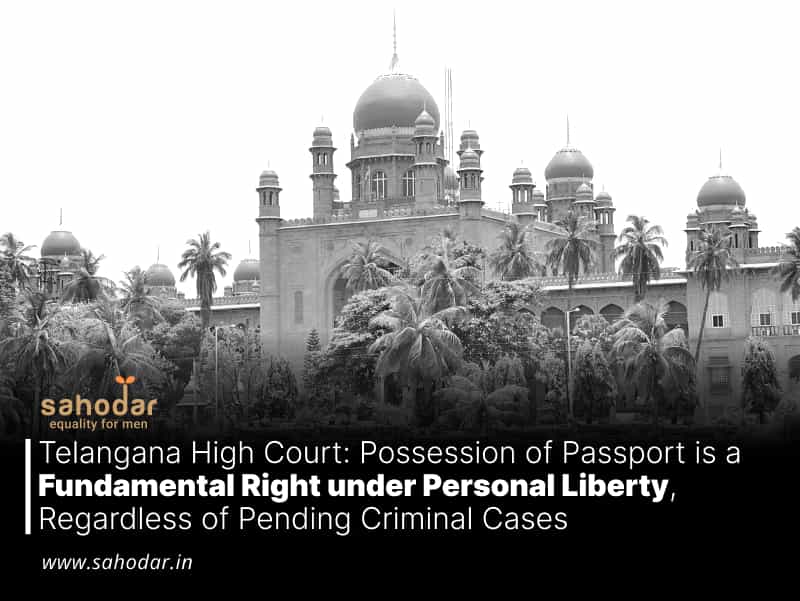Telangana High Court: Criminal Case Pending Doesn’t Justify Passport Denial; Personal Liberty Encompasses Passport Possession
The Telangana High Court ruled that the existence of a criminal case cannot serve as a valid reason to withhold passport services, as the right to personal freedom inherently includes the right to own or hold a passport.
Despite previous refusal under Sections 5(2)(c) and 6(2)(f) of the Passports Act, 1967, due to an ongoing court case involving offenses under Section 420, 468, and 471 of the Indian Penal Code (IPC), the Court approved the petitioner’s passport renewal.
A Single Bench of Justice Surepalli Nanda observed, “Respondents cannot refuse the renewal of passport of the petitioner on the ground of the pendency of the aforesaid criminal case against the petitioner and the said action of the respondents is contrary to the procedure laid down under the Passports Act, 1967.”
The petitioner submitted an application for the renewal of his passport. However, the Passport Office declined to provide passport services to the petitioner due to an unfavorable police report.
The petitioner argued that he was wrongly implicated in the case and emphasized his readiness to assist with the investigation, especially given the case’s relevance to immovable property, which ensured his availability to the authorities.
The Court held that “pendency of criminal case cannot be the ground to deny passport facilities to the petitioner since petitioner’s right to personal liberty not only includes petitioner’s right to travel abroad, but also petitioner’s right to possess or hold a passport.”
The Court observed that the Passport Office’s decision to deny the petitioner’s passport renewal due to a pending criminal case contradicted the procedure outlined in the Passports Act and the Supreme Court’s ruling in Vangala Kasturi Rangacharyulu v. Central Bureau of Investigation, 2020 Crl.L.J. (SC) 572.
In the aforementioned case, the Supreme Court clarified that passport refusal is permissible only when an applicant has been convicted within the five years preceding the application date for an offense involving moral turpitude and a sentence of imprisonment for at least two years.
Consequently, the Court instructed the Passport Office to reconsider the petitioner’s application within a ten-year period under Section 10 of the Passports Act, 1967.
Subsequently, the High Court granted the petition.

